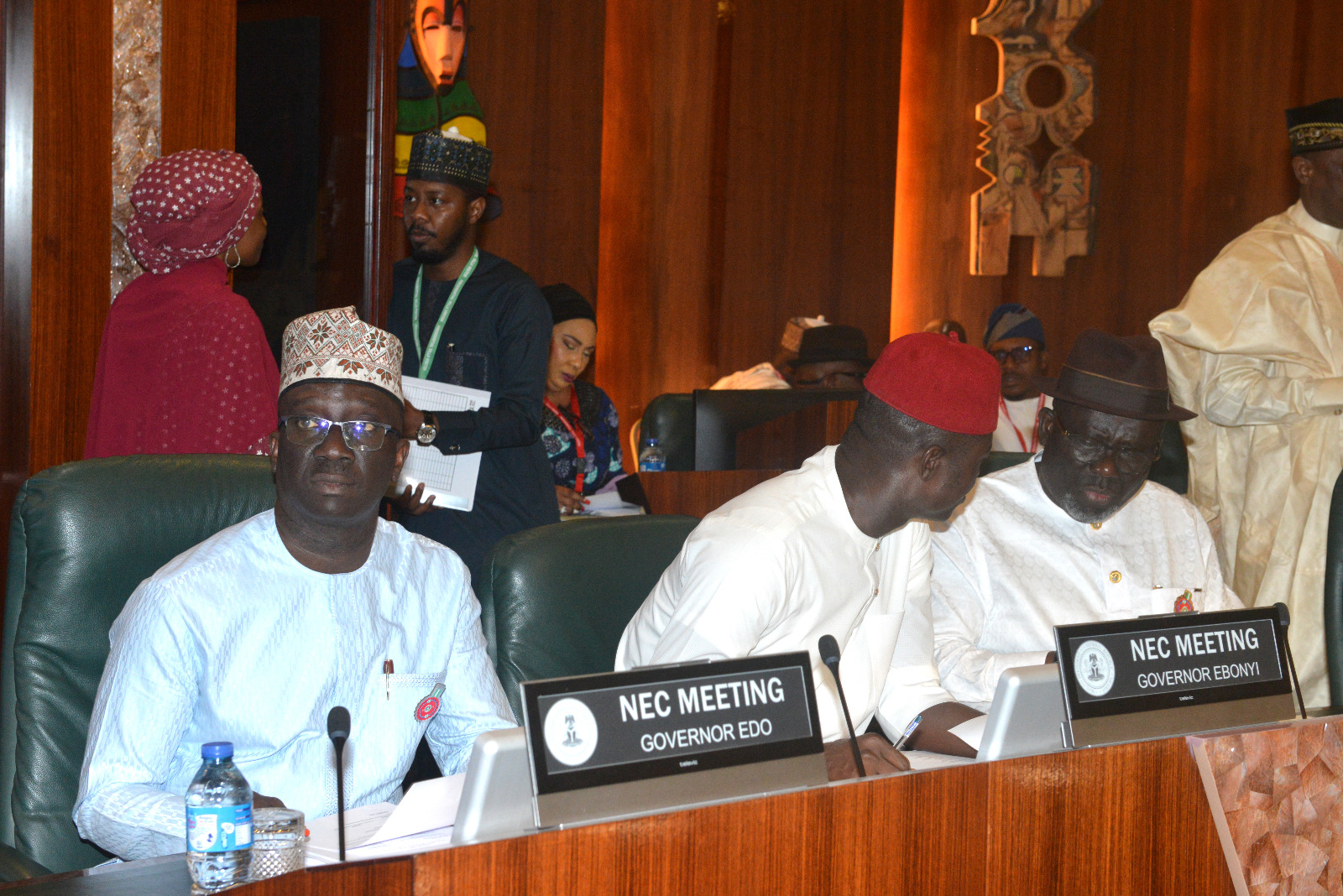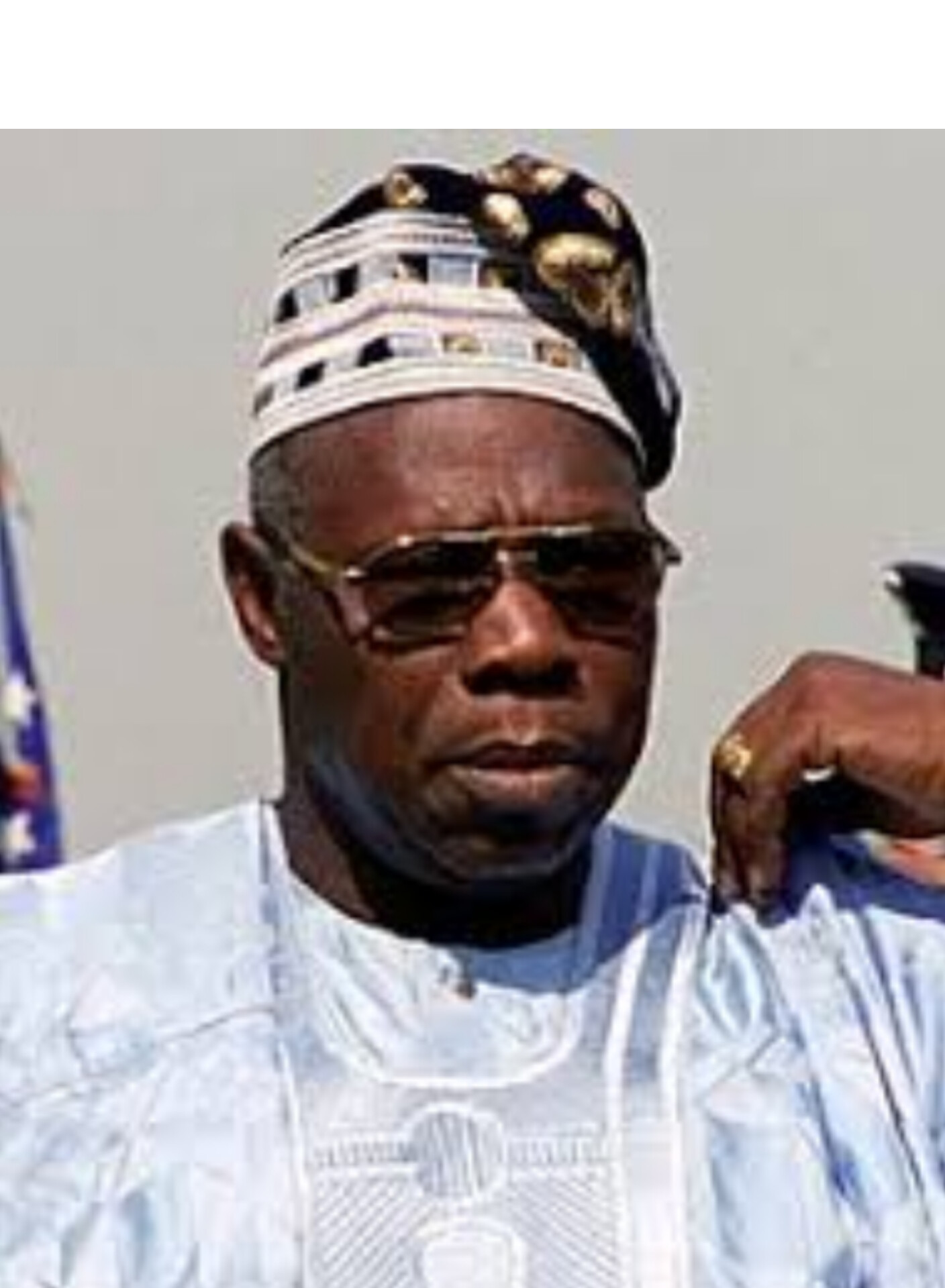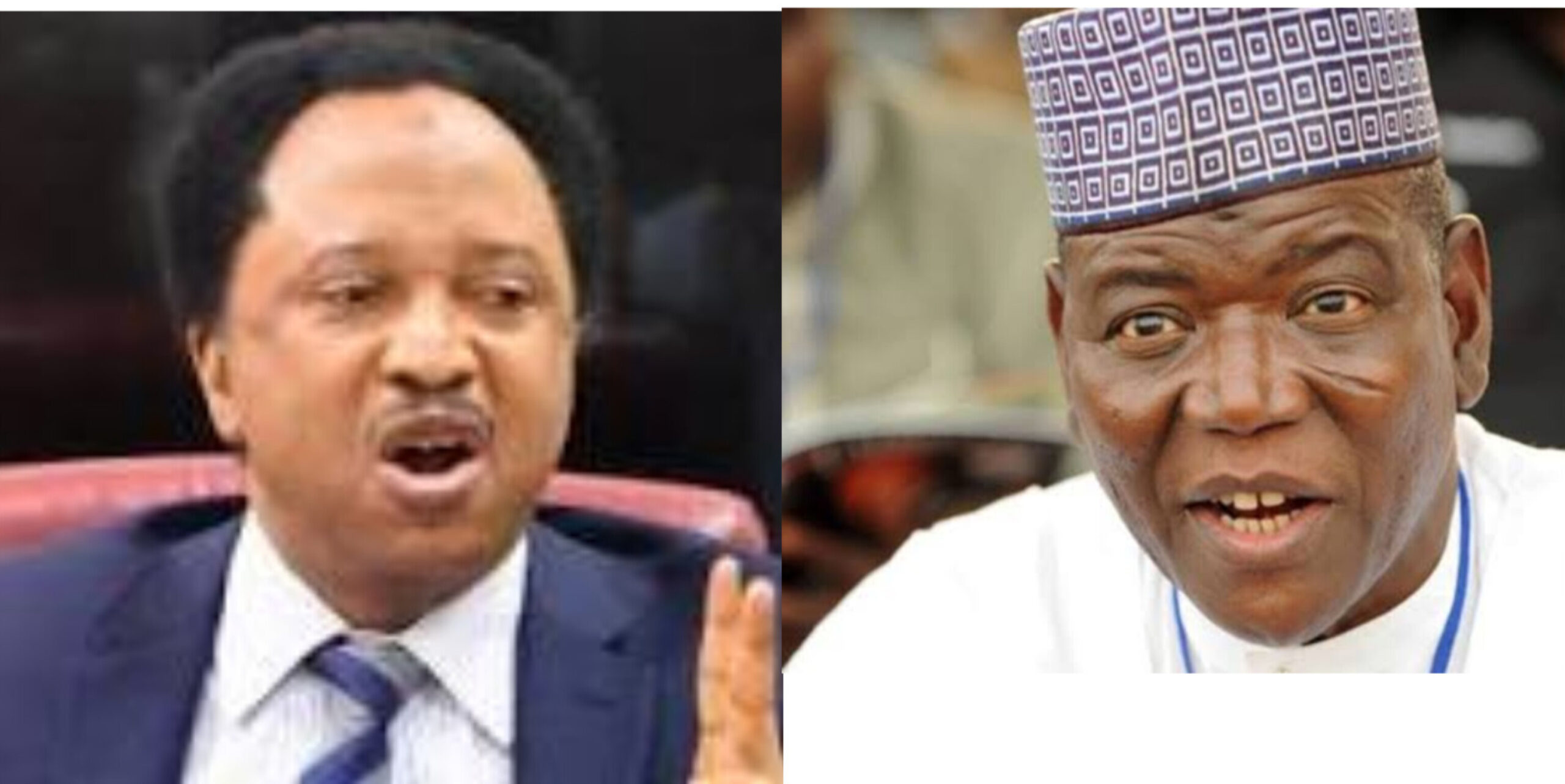National
Constitution Review: Akuns, Nnadi clash at NCEF consultative meeting

Traditional Ruler of Daffo in Bokkos Local Government Area of Plateau State, Da Jonathan Sunday Akuns, and the promoter of Nigerian Indigenous Nationalities Alliance for Self Determination (NINAS), Mr. Tony Nnadi, Thursday disagreed over the modalities to be adopted in birthing a new Constitution for the Federal Republic of Nigeria.
Akuns and Nnadi were among speakers at a consultative meeting convened by the National Christian Elders Forum (NCEF) on new constitution held via ZOOM.
Akuns contended that the 1963 Republican Constitution was not abrogated, all the House of Representatives need to do was to amend it to preserve Nigeria’s democratic and structural foundation.
He said “ethnic cohorts held a constitutional conference in Lagos on 25-26 July 1963 and mandated elected Members of the House of Representatives to enact the Republican Constitution with effect from January 10,1963.
“The enthroned autochthonous 1963 CFRN was never abrogated by military juntas, but simply suspended. Therefore, we need to carefully stitch the democratic strands of Nigeria by reviewing the autochthonous 1963 CFRN.”
Akuns, who is also an Economist and retired bank director, regretted that the Nigerian governing eras of 1966 to 1999 missed or messed with the opportunity to have called for the needed amendment of the 1963 constitution in order to restore the democratic foundations of the federal structure.
“As a result, the Federal Republic of Nigeria (FRN) suffered prolonged period of an interregnum that stifled and stunted the maturity of the tenets of republican governance in Nigeria. India is a global classic of republicanism in the nationhood strides of countries that also emerged by colonial creation.”
The former CBN director maintained that the best route for the constitution review process in the present circumstances is to tinker with the 1963 republican constitution, stressing that that is the best bet to preserve the democratic demands of constitution making.
But, countering Akuns’ postulations, the Executive Secretary of NINAS, Nnadi, argued that nothing short of a brand new corruption produced by indigenous nationalities can set the country right.
Nnadi, a lawyer and constitutional rights activist, noted that since sovereignty belongs to the people, the lie contained in the preamble of the 1999 Nigeria Constitution can only be cured by incorporating the inputs of Nigeria’s indigenous nationalities into a new constitution.
Citing Section 14 sub 2 of the Constitution, the NINAS chieftain explained that what the current National Assembly wants to do is not different from the past attempts at tinkering with the country’s grundnorm.
While insisting that amending the constitution would not berth equity and stability without suspending certain provisions stipulated by successive military regimes to foist a unitary constitution, Nnadi said there was need for a transitional procedure.
Another speaker, Elder Ayokunle Fagbemi, remarked that as the House of Representatives get ready to review the Constitution, it is necessary to build scenarios, noting that while the best case scenario is to birth a new constitution, the worse case scenario is that the legislature would not succeed in amending or getting a new constitution.
Fagbemi praised NCEF for the meeting saying that it would help to guide the Forum on the way forward as it prepares to engage with ethnic nationalities.
Earlier, the chairman of NCEF, Dr. Samuel Gani, disclosed that the consultative meeting was convened for Christian Elders to “deliberate on a new constitution for Nigeria and understand the different perspectives in the proposals for a new constitution before the NCEF with the ethnic nationalities.”
“Presently, there are four different perspectives in getting a new constitution for Nigeria, including *Amendment of the 1999 Constitution by the National Assembly.
“Adoption of the 2014 National Conference Report and its draft Constitution, *Adoption of the 1963 Republican Constitution (for) amendment to reflect current realities and A New Constitution developed by the ethnic nationalities,” he stated. Some of the dignitaries that attended the meeting included General Zamani Lekwot, Elder Nath Okoro, Mrs. Shola among others.
National
Edo Governor Joins National Economic Deliberations

Edo State Governor, Senator Monday Okpebholo, attended his inaugural National Economic Council (NEC) meeting on Thursday at the State House Council Chambers in Abuja.
The session was presided over by Vice President Kashim Shettima.
The NEC serves as a vital forum for state governors, deputy governors, and the federal government’s economic team to discuss and address key economic challenges.
In a gesture to mark his first appearance, Governor Okpebholo was invited by Vice President Shettima to lead the opening prayer after the national anthem.
This event underscores Edo State’s active commitment to collaborating on national economic policies and driving solutions for Nigeria’s progress.
National
At Achebe Forum, Obasanjo Labels Nigeria a ‘Failing State’ Criticizes Tinubu’s Leadership

Former President Olusegun Obasanjo has expressed sharp criticism of President Bola Tinubu’s administration, stating that Nigeria’s decline is now evident to “every honest observer.”
Speaking at the Chinua Achebe Leadership Forum at Yale University in the U.S., Obasanjo attributed the country’s deteriorating state to leadership failure, pointing specifically to Tinubu’s governance, which he referred to as “Baba-go-slow and Emilokan.”
In his keynote address titled “Leadership Failure and State Capture in Nigeria,” Obasanjo highlighted that pervasive corruption and mismanagement have worsened Nigeria’s challenges, driving the country deeper into insecurity, division, and underdevelopment.
He quoted the late writer Chinua Achebe, who in his book The Trouble with Nigeria argued that the country’s fundamental problem is a failure of leadership, not a flaw in its people or resources. According to Obasanjo, this diagnosis remains as relevant today as it was over 40 years ago.
Obasanjo cited works by American experts Robert Rotberg and John Campbell, who have characterized Nigeria as a “failed state.” Their argument, he noted, suggests that Nigeria’s inability to maintain security and stability has serious implications for Africa and the world at large.
Additionally, the former President described “state capture” as a pressing issue in Nigeria, where powerful individuals and groups exploit government resources and policies for personal gain. Obasanjo argued that this corruption undermines national interests, with influential elites shaping the country’s legal and economic systems to benefit themselves. Such practices, he warned, compromise public welfare, affecting the quality of education, healthcare, and infrastructure development.
In reflecting on Achebe’s legacy, Obasanjo praised the late author’s commitment to truth and the moral foundation he established for Nigeria. He urged Nigerians and the international community to recognize the dangers of state capture and work towards restoring a governance model that prioritizes the public good.
National
Sule Lamido, Shehu sani disagree over National Security Adviser

The senator who represented Kaduna Central Senatorial District in the 8th National Assembly, Shehu Sani has disagreed with a former Governor of Jigawa State, Sule Lamido over national security issues
Lamido had taken a strong position against the current National Security Advisor (NSA), Nuhu Ribadu accusing him of compromising his professional integrity and acting more like a spokesperson for President Bola Tinubu than fulfilling his constitutional role.
Sani advised Lamido to at least appreciate how the Tinubu led Administration tackled insecurity instead of politicizing it in his comment on the National Security Adviser.
Ribadu who was basking in the euphoria of the recent claims of decimating the insurgents cautioned anyone “not to dare Tinubu”, espercially the new Lakurawa Insurgents a development which infuriated the former governor of Jigawa State and a Chieftain of the Peoples Democratic Party,(PDP), prompting him to take to his verified facebook wall to describe the NSA as “loquacious, flippant and qualified to have been Tinubu’s Minsiter of Information instead of NSA.”
Lamido Criticizes NSA for Sycophantic Behavior, Urges Focus on Duties.
Lamido in his comment had expressed concerns over the NSA’s behavior, particularly his past actions as the Chairman of the Economic and Financial Crimes Commission (EFCC) under President Olusegun Obasanjo. Lamido reminded Nigerians of the NSA’s controversial remarks, including his public labeling of prominent governors—such as Tinubu, Kalu, and Akume—as the “most corrupt.” Lamido pointed out the stark contradiction between the NSA’s earlier criticisms and his current position, serving under the same figures he once condemned.
The former governor called the NSA’s decision to join the administration of President Tinubu—a leader he previously described as corrupt—a “singular mistake,” one that Lamido believes has tarnished the NSA’s credibility and character. “You are not a spokesperson for the President, you are a National Security Advisor,” Lamido emphasized, urging the NSA to return to the professionalism that has historically defined the role.
Lamido argued that previous holders of the NSA position, including the late Umaru Shinkafi, General Gusau, and Colonel Dasuki, all displayed discipline and a low profile, focusing on security matters without resorting to public displays or sycophantic behavior. Lamido lamented that the current NSA’s behavior reflects a departure from this standard, pointing to his increasingly vocal and partisan approach.
Rather than fulfilling his duties as an anonymous and diligent security advisor, Lamido claimed that the NSA’s moral dilemma and excessive displays of loyalty to the president have shifted him into the role of a “Minister of Information,” undermining the neutrality and importance of his position.
In closing, Lamido urged President Tinubu to allow his NSA to regain focus, remove his fears, and return to the professional standards expected of someone in such a sensitive and critical role. The criticism continued to ignite debates about the role of the NSA and the expectations of public office holders in Nigeria, with many calling for greater transparency and consistency from those in power.
Reacting, Shehu Sani countered Lamido in a statement on Friday in Abuja, saying there should be a credit and a commendation for an administration that inherited multi-faceted security challenges ,but which has been reduced to the barest minimum, wondering how the elderly statesman failed to acknowledge the many triumphs of government in bandits hotbed regions in the north.
Sani who served in the upper legislative Chamber in the 8th National Assembly said, he witnessed to the appropriation budget allocated to security which unfortunately did not abate security challenges before now, expressing that Nuhu Ribadu has achieved what many of his predecessors have failed to accomplish despite the hundreds of billions spent in the name of defence and security in the past;
According to him, bandits have been neutralized to a large extent, thus encouraging government in this direction until total victory should have been ideal rather than playing haywire politics which he said may not help the yet-volatile situation in the North.
He said: “Neutralisation of top bandit leaders, end to mass abductions of students in northern schools,
“Securing rail lines and major northern highways hitherto notorious for kidnappings. The prompt response to terrorist attacks on power lines is worth mentioning.
“Security challenges are not over but in all indices of comparison, he has performed better and set unprecedented records. His political critics are fully entitled to their views ,but his delivery on his mandate is unparalleled.”, Sani concluded.
-

 Crime1 year ago
Crime1 year agoPolice nabs Killer of Varsity Lecturer in Niger
-

 News10 months ago
News10 months agoFCT-IRS tells socialite Aisha Achimugu not to forget to file her annual returns
-

 Appointment1 year ago
Appointment1 year agoTinubu names El-Rufai, Tope Fasua, others in New appointments
-

 News From Kogi1 year ago
News From Kogi1 year agoINEC cancells election in 67 polling units in Ogori-Magongo in Kogi
-

 News From Kogi1 year ago
News From Kogi1 year agoEchocho Challenges Tribunal Judgment ordering rerun in 94 polling units
-

 News1 year ago
News1 year agoIPOB: Simon Ekpa gives reason for seperatists clamour for Biafra
-

 Metro8 months ago
Metro8 months ago‘Listing Simon Ekpa among wanted persons by Nigeria military is rascality, intimidation’
-

 News10 months ago
News10 months agoKingmakers of Igu/ Koton-Karfe dare Bello, urge him to reverse deposition of Ohimege-Igu
